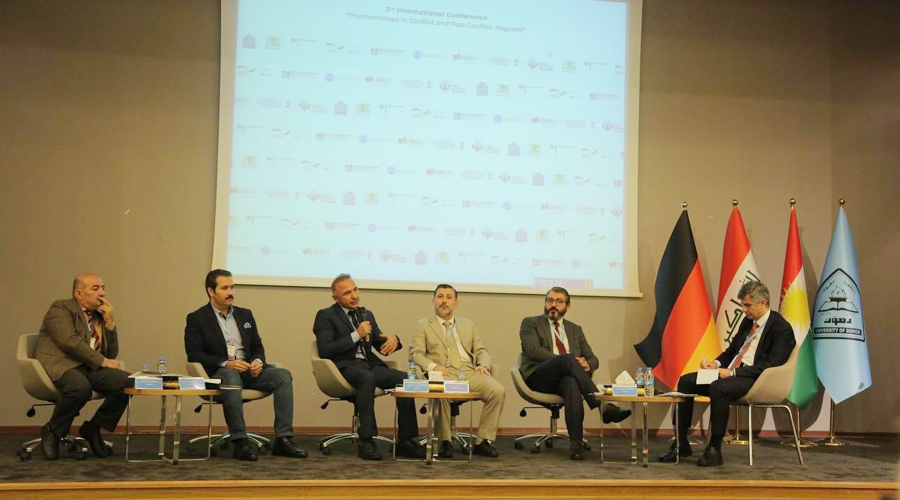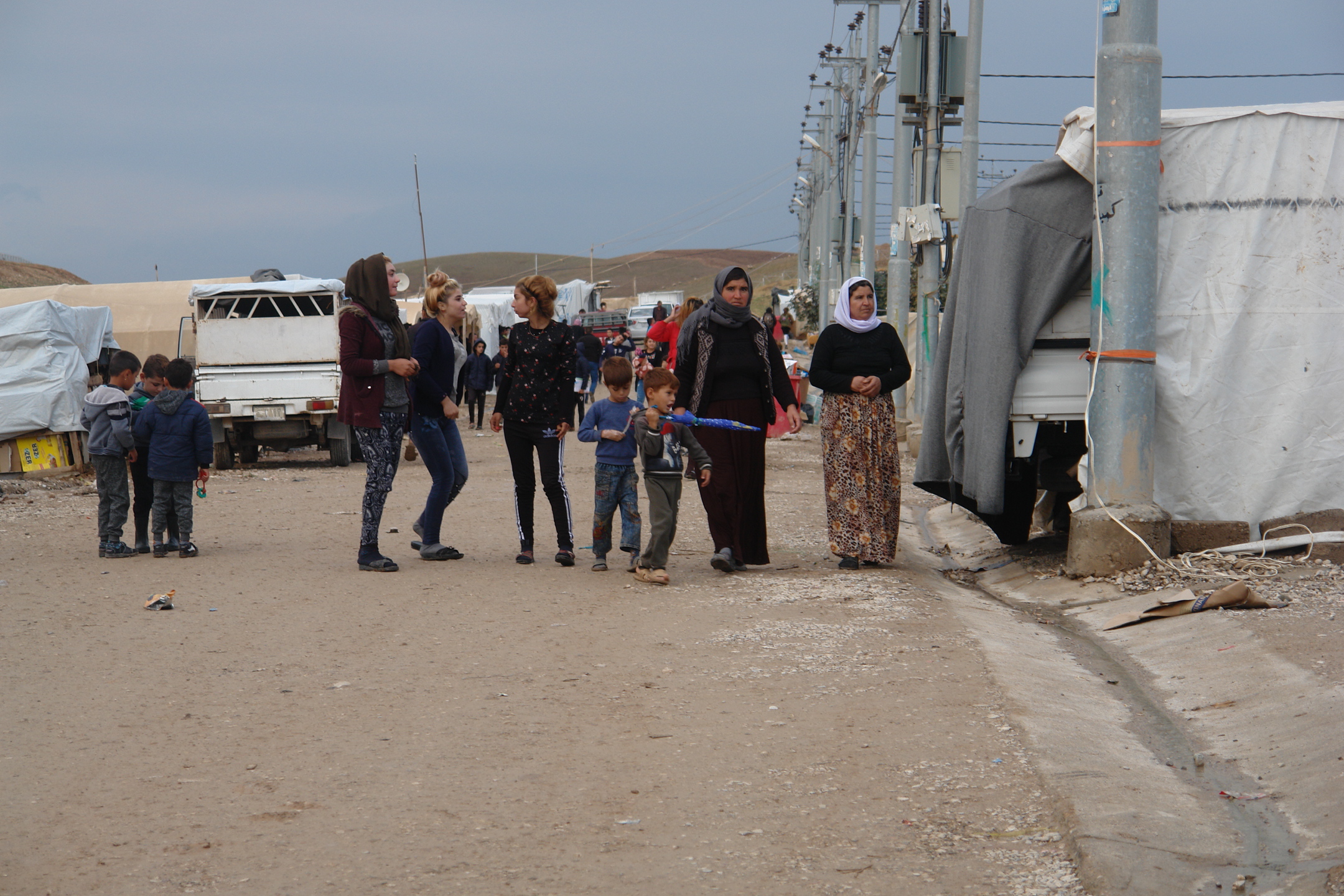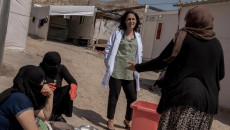Psychologists and civil society organizations are studying options to deal with the psychological problems faced by the people of the in the conflict areas, after the three-year war of the Islamic State of Iraq and the Levant ISIL.
ISIL took control of Ninewa and parts of Kirkuk, Diyala and Salahaddin provinces from June 2014 to the end of 2017, during which time its people faced killings, sexual assaults, kidnappings and displacement. It has exposed the survivors to mental shock and psychological trauma.
Ibrahim Khalil, Executive Director of the Institute of Psychotherapy and one of the participants of the conference, stressed the aim of the third conference held at Duhok University on the same issue since the fight against ISIS, was to look for the results and consequences of mental problems of the people of the region.
The aim of the conference was for psychologists to explore the consequences of mental problems in the region
The audience focused on psychological shock, as Ibrahim Khalil said, one of the biggest challenges for the future of the people of the area.
"We want to find a solution to solve all the psychological problems of the people of the conflict areas and areas where there has been war and destruction," he said.
Many local and international psychologists and organizations are working on the same issue.
Seized in August 2014 by IS militants whom accused the non-Muslim Ezidis of being “heretics,” Shingal has been the scene of tragedy: a genocidal campaign of killings, rape, abductions and enslavement, amounted to genocide.
Shingal, on the Iraq-Syria borders, is home to over 80 mass graves and tens of individual graves for Ezidis slaughtered at the hands of the extremist militants of IS. According to the Kurdistan Regional Government KRG office figures, out of 550,000 Ezidis, 360,000 were displaced, 160,000 back to Shingal, and 100,000 migrated abroad. The rest are still living in tents as Internally Displaced Persons IDPs in adjacent Duhok Northern province due to lack of reconstruction and stability in their war-torn region.
Bashar Ahmad, a psychotherapist and specialist in the treatment of mental shock, told KirkukNow, “Children and women are more likely to experience mental shock in these areas and in our society, because children's brains are not yet well developed.”
“They have faced sexual assault and kidnapping during the ISIS era.”

“Psychological shock must be treated and fear and anxiety must not be passed on to their descendants, which is sometimes passed on through stories. For example, the Yazidis constantly say that they have dozens of mass graves and their people have faced mass killings, kidnappings and sexual assaults, thus the shock is continuously with them,” Ahmad added.
Thousands of Ezidi women, girls and kids were enslaved and taken as sex slaves. KRG office for rescue of missing Ezidis says 6,417 Ezidis were enslaved by IS when it took over Shingal in 2014 and 2,700 of them have been brought to unknown destiny.
"In general, we have to look for the causes of trauma faced by each individual and the solutions. It requires a lot of work and we need to pass on the experience of countries that have faced the same problems because of the war," he believes.
In general, we must look for the causes of trauma faced by each individual and its treatment
"What has been done in this regard is the establishment of an office to rescue the Ezidis (Yazidis) from Daesh (ISIS), especially women, and a special psychological institute has been opened for psychological treatment of women and children to integrate into their communities easily," said Diyan Jaafar, head of KRG office in Duhok for IDPs.
Ezidism is an old Middle Eastern monotheistic ethnic religion and is based on belief in one God who created the world and entrusted it into the care of seven Holy Beings, known as Angels. The outstanding among these angels is Melek Taus (Peacock the King) who is the leader and has authority over the world.
Most Ezidis speak Kurmanji, one of the two main Kurdish dialects, however, most Ezidis consider Ezidism a religious not ethnic identity.
Bashar Kochar, a psychologist who participated in the conference and works with NGOs to treat mental shock in the conflict areas, said: “Most of the mental illnesses in these areas were caused by war.
“Currently, this continues due to absence of stability and security which leads to unrest and disorder, all have to be addressed at once.”






